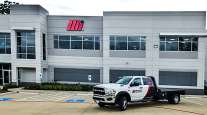A Positive Problem
It’s sort of a good problem to have, shortages. It’s a problem that means times are good. Suppliers of components that go into Class 8 trucks say they’re barely able to keep up with demand, as truck manufacturers shift into high gear to meet carriers’ desire to replace their aging vehicles.
That’s good, because it means trucking prospects are strong enough to warrant buying new trucks.
But having been scared by the sharp drop in truck-buying after the introduction of EPA 2007-compliant trucks, manufacturers have been reluctant to invest in more brick and mortar.
Wary of getting overextended in a punishing market, OEMs and their suppliers have been somewhat surprised by the fairly recent surge in demand from carriers, whose fleets are older now on average than they’ve ever been.
Most truck-buying so far has been for replacement of old power units, but even that has caused a big bulge in orders, bigger than many suppliers expected or were ready to meet.
The recession hit components suppliers especially hard, with many being driven out of business. And the remaining healthiest companies — like carriers and like truck makers themselves — have deliberately remained lean, squeezing out costs and waiting for the market to prove itself before going too far out on a limb.
It’s a smart strategy that ensures the survival of a viable supplier community, but now everything is hitting at once.
Truck orders, which languished at 12,000 a month a year ago, started to take off in November, and hit 36,000 in April. Suddenly, everyone has to ramp up, and quickly. That’s led to some spot shortages that may get worse as truck makers work to meet all the demand.
Now truck production has been affected by shortages of a wide range of parts: tires and axles and electronic parts.
“We have never in the history of our industry tried to ramp-up this fast,” said Joe McAleese, CEO of Bendix Commercial Vehicle Systems, in this week’s Transport Topics. Bendix makes brakes and a variety of wheel-end products.
Meritor Inc. makes axles, brakes and suspension systems, for Class 8 trucks. Carsten Reinhardt, chief operating officer, said that while the industry knew an upswing was coming, “the run-up has been much steeper than expected.”
Other truck makers and components suppliers reported similar problems.
So, it looks like it may be harder and harder to get new trucks delivered later this year. That’s the downside of playing it close to the vest.




